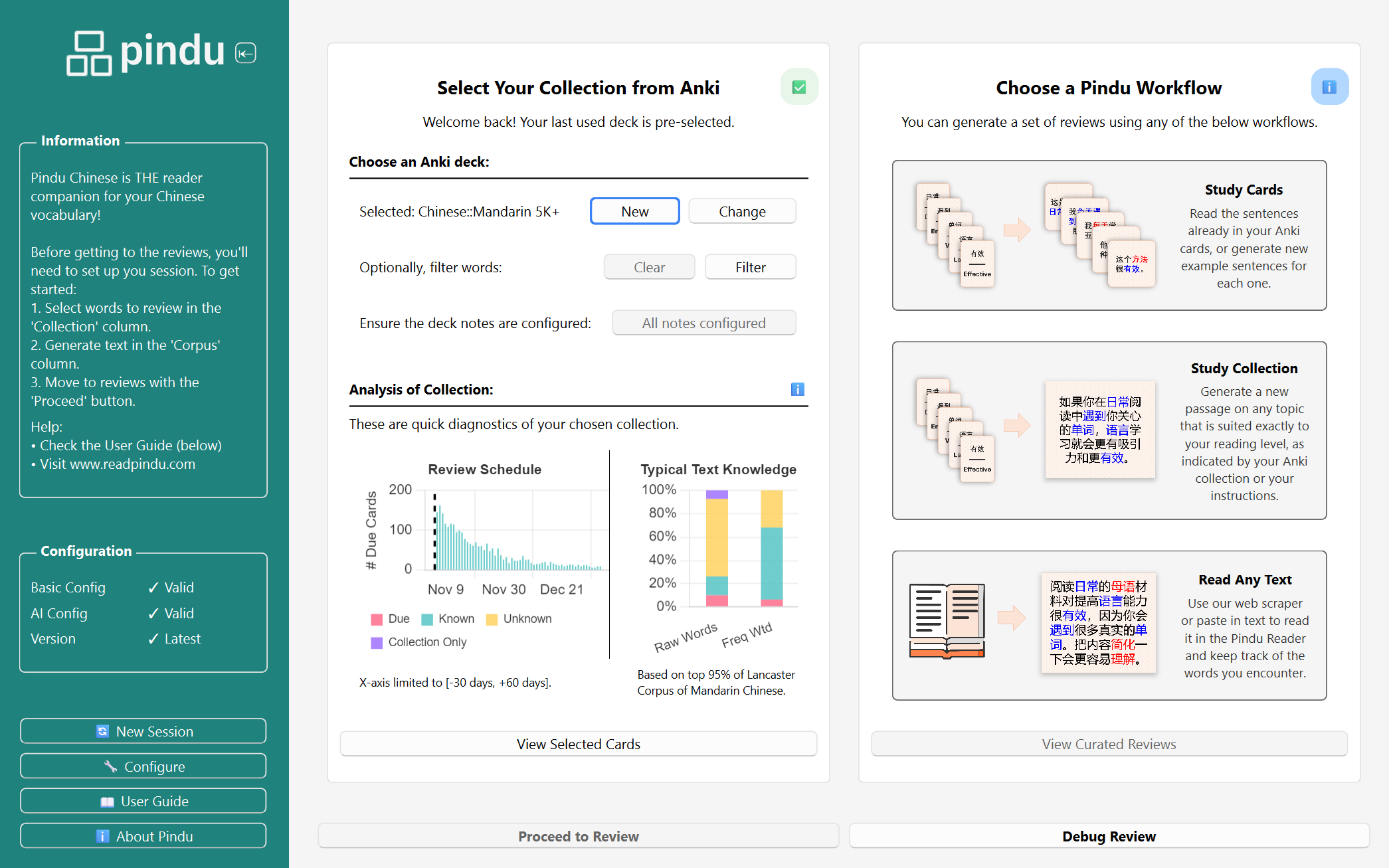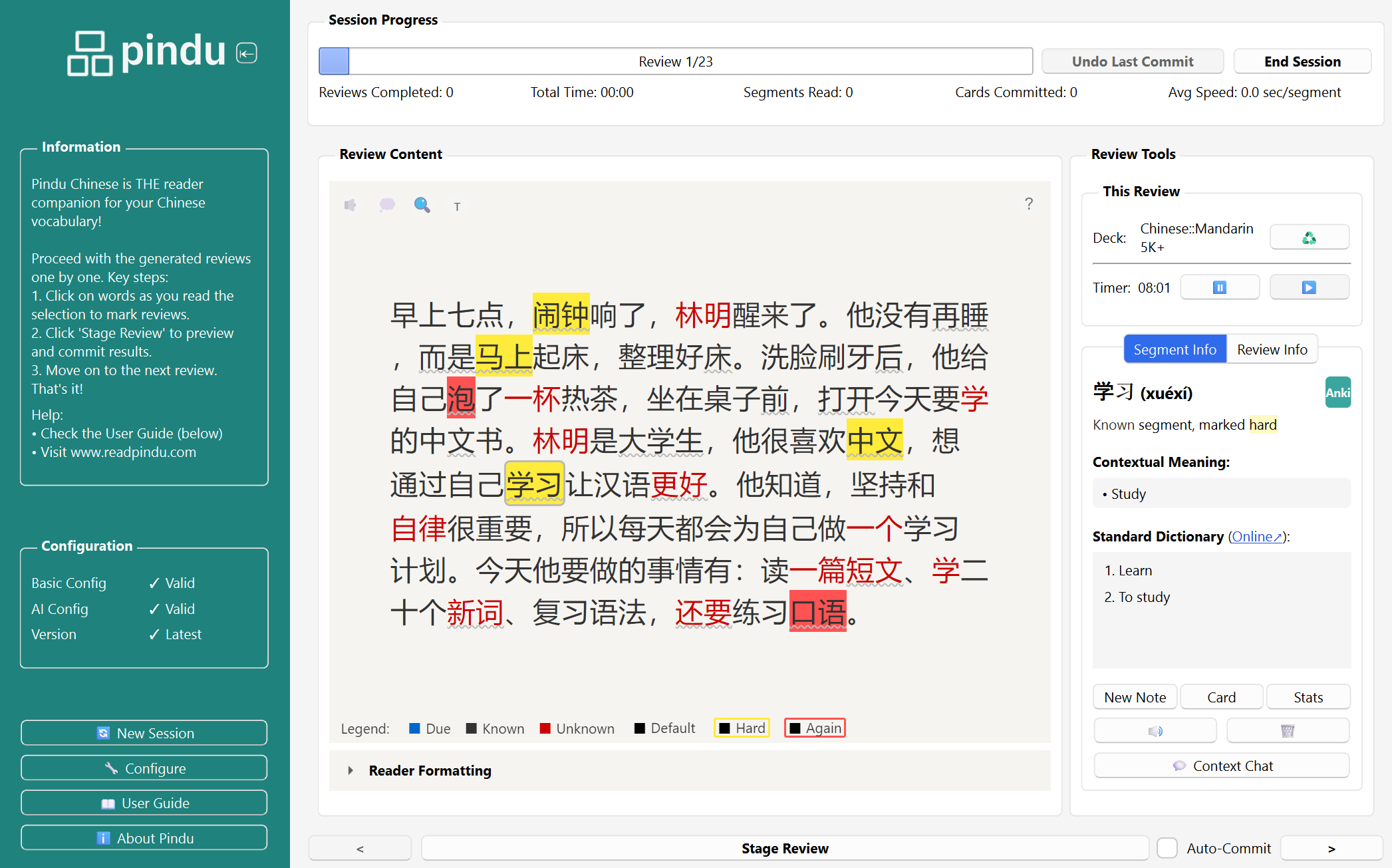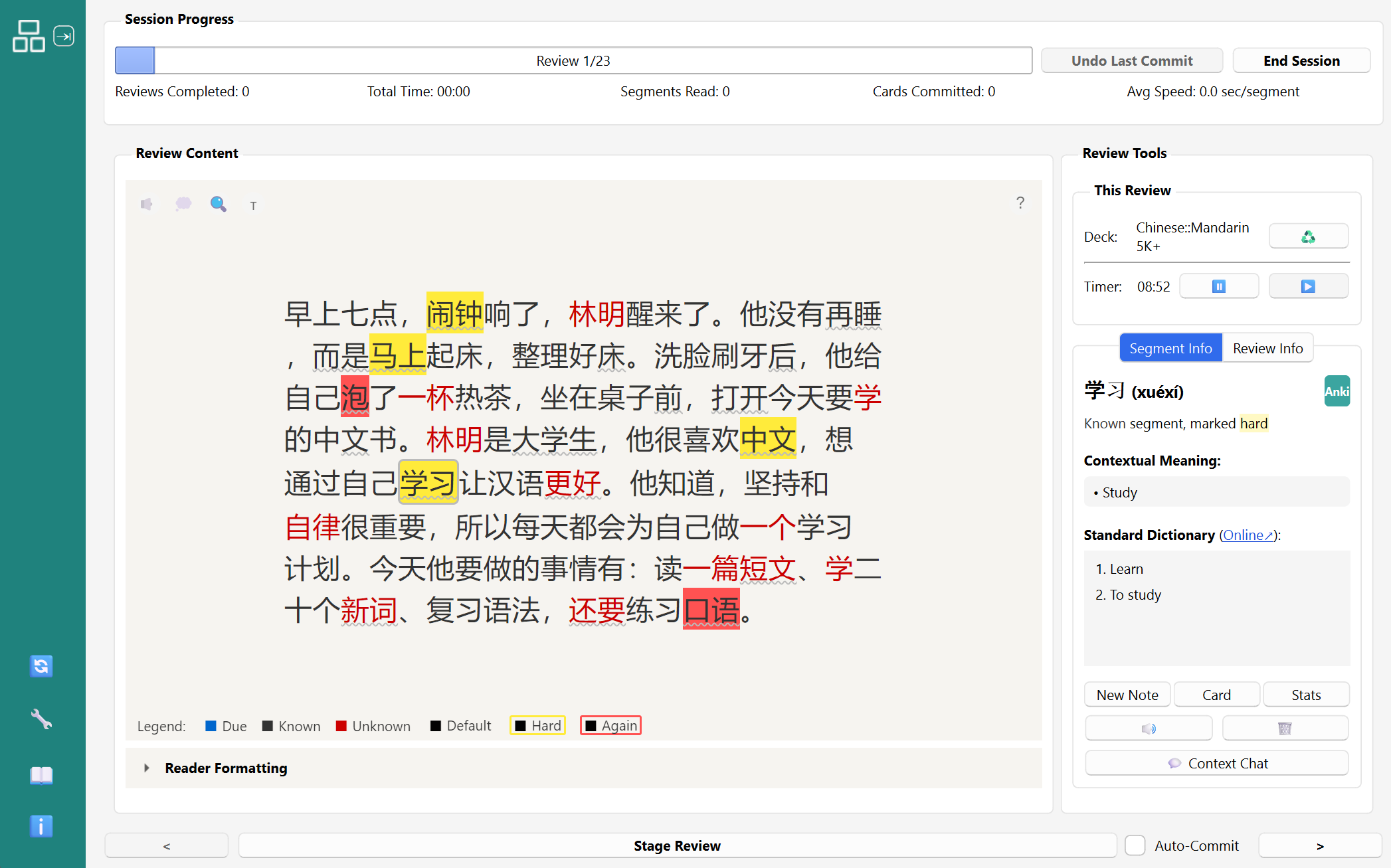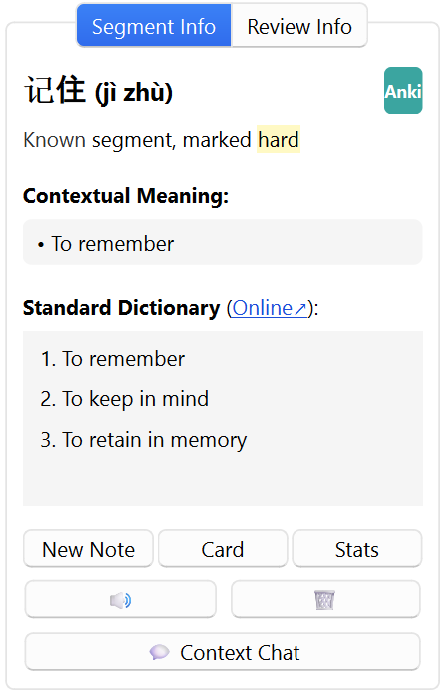Get started in 4 steps
-
Visit the Anki add-on page
Navigate to AnkiWeb's shared add-ons
-
Download Pindu
Click "Download" and copy the add-on code
-
Install in Anki
Open Anki, go to Tools → Add-ons → Get Add-ons, and paste the code
-
Launch Pindu
Restart Anki and find Pindu in your tools menu



